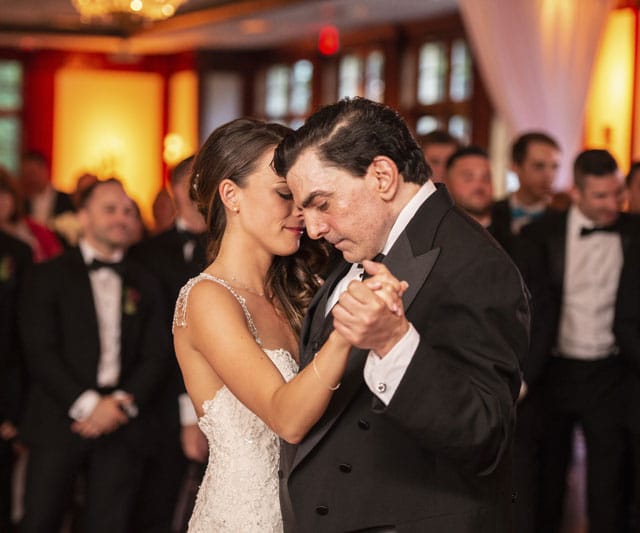Webster defines perseverance several ways: “Persistence in anything undertaken; patience and perseverance overcome the greatest difficulties, and, perseverance keeps honor bright.’’
All apply to Tom Maniscalco, the Garfield, N.J. graduate of Rutgers University’s class of 2025, with a master’s degree in engineering.
Oh, and Maniscalco is 85.
That makes him the state university’s oldest graduate, ever.
“It’s a sense of accomplishment at my age,’’ Maniscalco said, with understatement.
He spoke from his summer home in Rocky Point, on the north shore of Long Island, a town that abuts the area’s state Pine Barrens Preserve, untouched by development.
His father, Joseph Maniscalco, helped his father, also Joseph, a carpenter who immigrated from Sicily, build the summer house on weekends in 1948. The Maniscalcos made the 62-mile drive each summer to Long Island from Garfield, the family home then and now. His mother Frances, born in Bari, Italy, was a seamstress.
His Third Advanced Degree
Upon his graduation from Rutgers in May, Maniscalco had already earned a bachelor’s degree from New York University, and a master’s of science of mechanical engineering and a working engineer’s doctorate, both from the New Jersey Institute of Technology.
On top of all that, while studying at NYU, Maniscalco was elected to Tau Beta Pi, the national engineering honor society.
And now, in his 80s, he is a member of Pi Mu Epsilon National Honor Society for mathematics, and the vice chair of the North Jersey Chapter of American Society of Mechanical Engineers.
A 60-Year Career
Maniscalco’s early career, while pursuing graduate degrees, included working at Bendix Corp., an aviation and defense company. He worked on the aerospace equipment used on the unmanned Saturn rocket that went to the moon, as part of the Apollo program. While at Bendix, he met the German engineer and rocket pioneer, Wernher von Braun, who had surrendered following World War II and later developed rocketry for the United States in Huntsville, Ala.
As a design engineer, Maniscalco’s projects included working on developing the navigation guidance system for the Space Shuttle missions, at Kearfott Guidance and Navigation Corp., a defense equipment manufacturer then in Little Falls, N.J.
And in 2019, after 28 years, he retired from working at the Department of Defense.
By any measure, a stellar education and career. But one accomplishment eluded Tom Maniscalco: graduating from Rutgers University, where his father had sent him 68 years earlier to study mechanical engineering.
Full Circle
Maniscalco entered Rutgers in September 1957; after a long struggle, with occasional bright spots, he dropped out before graduation.
In his first semester, he received an A in calculus and a B in physics but he failed engineering drawing, the field he would excel at in his career.
“It was a strange thing but I had a lot of problems adjusting because it was the first time I was living away from home. In my freshman year, I did well but things changed in my sophomore year,’’ he said.
“I had trouble concentrating. I always felt that I knew the subject but I just couldn’t do the tests. I struggled all the way through,’’ he said.
But he had an abiding sense that he knew his subject well; he just needed to be in the right frame of mind to continue his education. In 1964, at 24, while working at Bendix, began commuting from Garfield to the Bronx campus of NYU for night courses; after two years, he quit Bendix, attended NYU fulltime and graduated in 1967.
Maniscalco called his early experience at Rutgers “an unfinished chapter; I didn’t leave Rutgers on good terms and I always wanted that degree, especially for my father.’’
Flash forward to his retirement in 2019, at 79. Maniscalco wanted something to keep him busy and interested, so he applied to Rutgers and was accepted as a special student. He studied mechanical engineering for six years by remote sessions, which enabled him to keep taking more classes, and to study without pressure. [Maniscalco isn’t the only 2025 graduate who finally finished a degree begun in the 1950s.]
An Inspiration and a Good Saver
Maniscalco made quite an impression at Rutgers. “His drive and commitment to improve himself has been inspiring,” said Stephen Tse, who was Maniscalco’s professor and advisor and serves as the graduate program director of the Mechanical and Aerospace Engineering Department in the Rutgers School of Engineering. “Each time I interact with Tom, it puts my life in perspective and how lucky I am to meet people like him,” he told the Rutgers Today website.
At the graduation ceremony in May, Maniscalco entered with faculty members and was the first to receive his award. He said he told the gathering his age, which prompted applause.
Maniscalco, who was born Dec. 24, 1939, remembered that when he attended college as a young man, tuition was $200 and room and board was $200. This time around, he paid $3,000 for each three-credit-hour graduate course. He was working part time when he attended NYU in his 20s and paid for his education out of his own pocket, which he also did decades later at Rutgers.
He said he invested his pensions well and saved as much as possible during his work years. He didn’t work with a financial advisor, but learned about economics by reading works by Milton Friedman, a Rutgers University graduate; John Maynard Keynes; and Joseph Schumpeter, a Harvard economics professor and author of “Creative Destruction.’’
Still Learning and Persevering
Maniscalco never married and doesn’t have any children. His younger brother, Peter, died of cancer a few years ago. Continuing to learn and do are important to Maniscalco, whose work with the North Jersey Chapter of American Society of Mechanical Engineers includes presenting debates several times a year on school campuses in New Jersey. He attends the group’s webinars, too.
He takes a daily walk and he keeps busy with projects like painting the houses that he has lived in his entire life that he inherited from his parents and grandmother. He also is a devotee of aerodynamics and World II aircraft, and he reads aircraft publications.
Maniscalco says he was blessed with a good mind and inherited his work ethic from his mother, who worked in dress factories in Manhattan in the 1930s and 1940s, and his father, a dress presser.
“I delivered newspapers when I was in grammar school and worked for my uncle on weekends. I found my interest. But perseverance is most of it,’’ he said.







